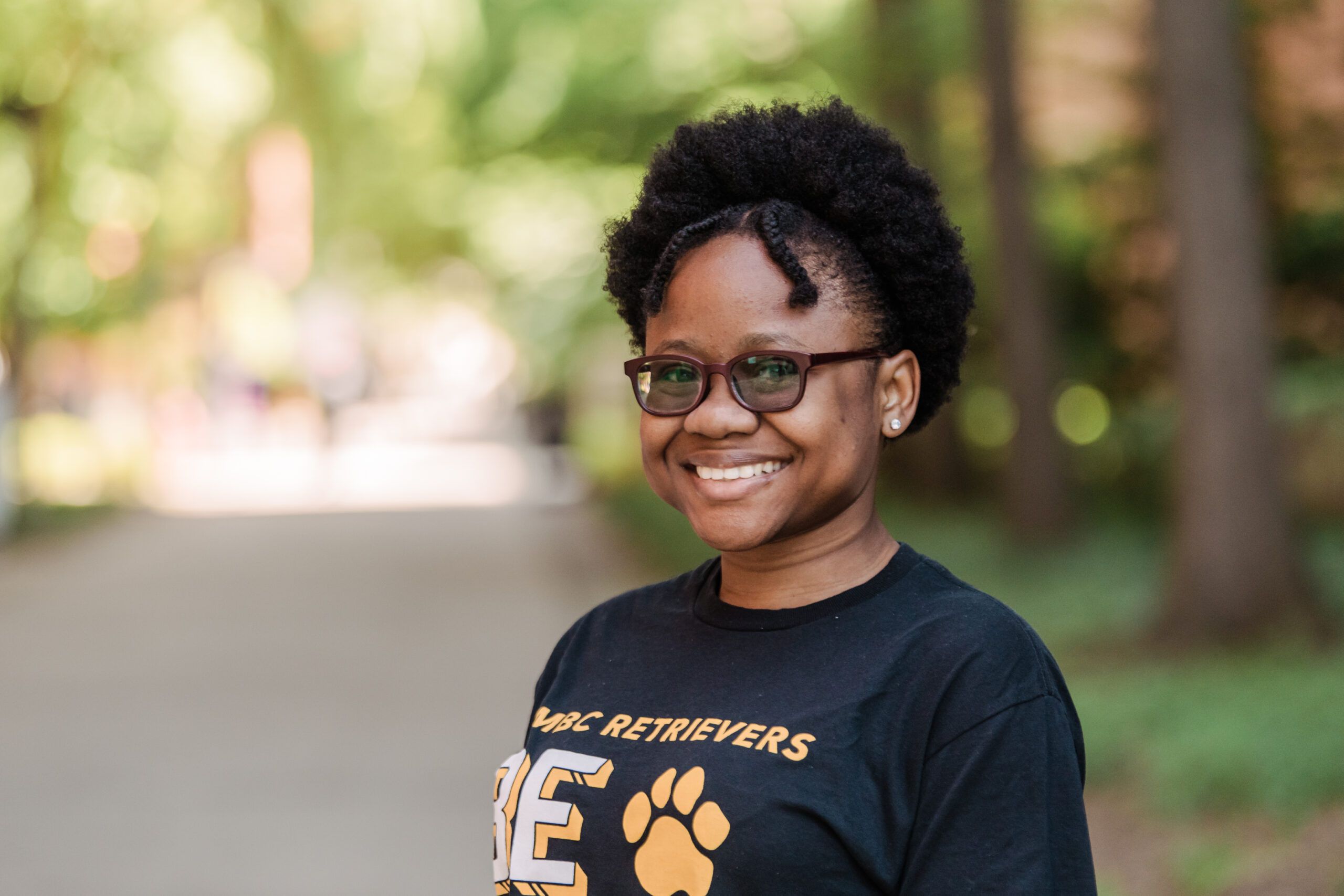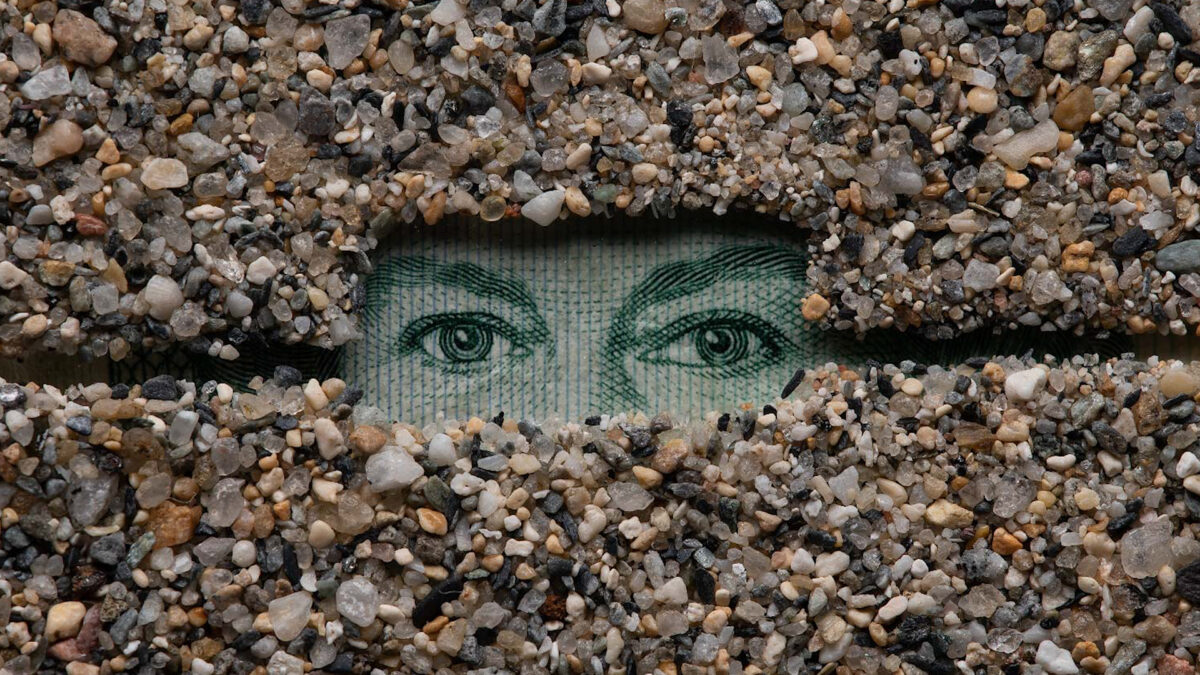From Cameroon to Baltimore City, Alberta Ndille’s worldview has inspired her hands-on approach to understanding the underlying causes of health and social disparities. Throughout her time at UMBC, Ndille ’24, sociology, anthropology, and public health, has participated in and led groups and activities within the African Student Union, as a First Year Ambassador and Orientation Peer Advisor, in InterVarsity Christian Fellowship, STRiVE, and as an Academic Peer Advocate. Now she’s preparing to begin a prestigious summer internship at the Maryland Department of Health Cancer and Chronic Disease Bureau where she will help implement public health awareness programs and events, including during The Raven’s pregame parties at M&T Bank Stadium.
Q: What was your path to UMBC?
A: I was born in Maryland but was raised in Cameroon. I began my college experience at Prince George’s Community College. At that time, most of the classes were still online due to COVID-19. It made me crave a more traditional college experience. Once things began to open up more, I applied to UMBC and was accepted into the Honors College.
Q: How did you choose your major?
A: Internationalization has a big influence. I’m interested in global health and epidemiological research. I spoke with several people about my interests and they suggested I look into public health. Social determinants of health caught my attention. Living in the U.S., I saw a very different approach to maternal health than in Cameroon. Maternal health is discussed more openly in the U.S. and there is also more access to preventative care. Because Cameroon has less healthcare access, sometimes parents have to wait longer than they would want to seek care. I want to research the barriers to maternal healthcare in Cameroon and maybe that can help other countries as well.
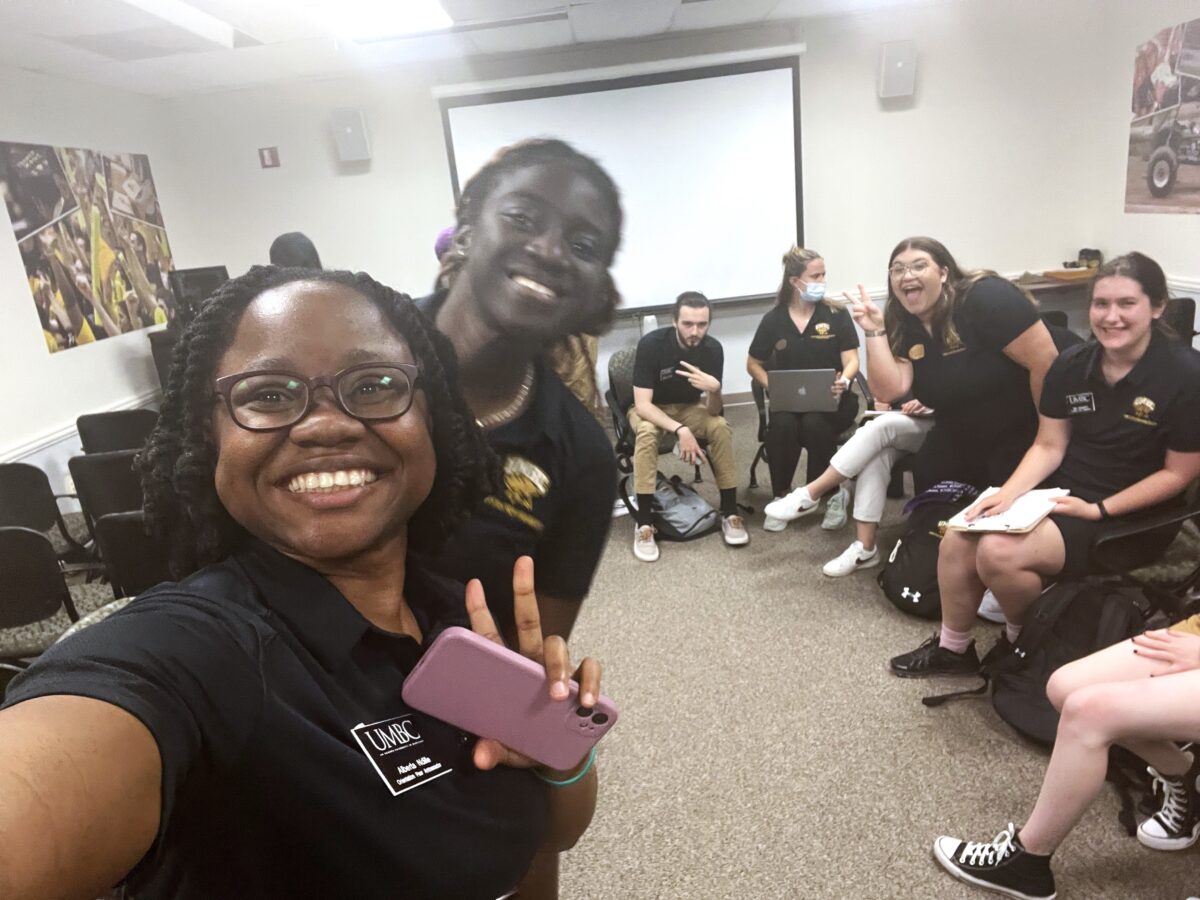
(Image courtesy of Ndille)
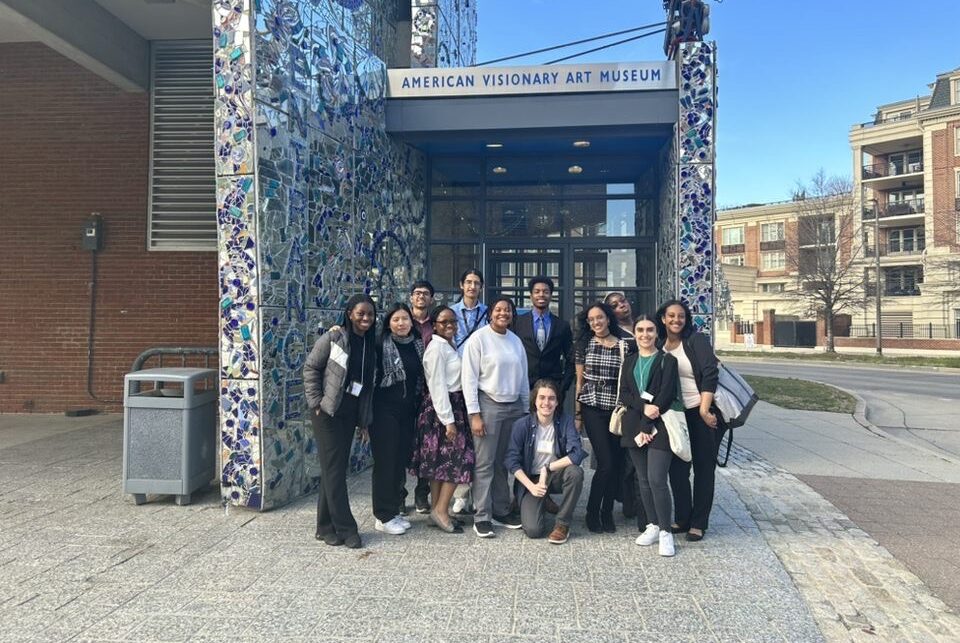
Q: What is your most transformative UMBC experience?
A: Working with the Center for Democracy and Civic Life’s Alternative Spring Break (ASB) program—as a participant and leader—helped me understand important issues outside the classroom. As a participant, I learned about educational justice for youth impacted by intimate partner violence. We visited Baltimore’s City Hall to speak with community members and non-governmental organizations (NGOs) working to dismantle these barriers. As a leader, I had the opportunity to co-organize a week of experiences on a topic of my interest.
My spring honors seminar, “Community Engaged Writing,” focused on prison narratives and counselor stories. We read books and literature by formerly incarcerated people, currently incarcerated, and recently released. We learned about the effect mass incarceration has on communities. I wanted to look at this topic within the context of Baltimore City.
I organized an ASB to understand better incarceration in Baltimore City and how to improve life in and out of prison. Throughout the week, we went to Baltimore City Hall to meet with the Department of Parole and Probation, to speak with NGOs and others who manage re-entry programs, and with people currently in re-entry programs. I learned to appreciate both the participant and the leader’s perspective.
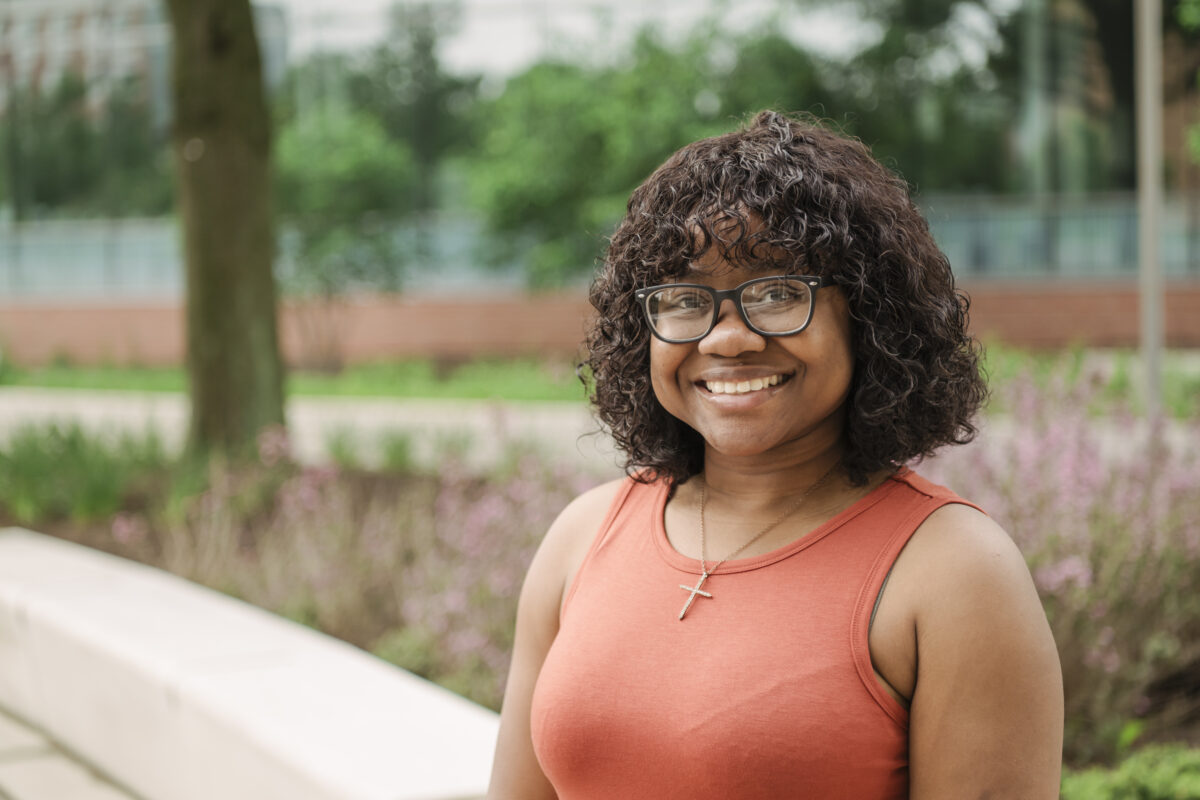
“Working with the Center for Democracy and Civic Life’s Alternative Spring Break (ASB) program—as a participant and leader—helped me understand important issues outside the classroom. As a participant, I learned about educational justice for youth impacted by intimate partner violence. As a leader, I had the opportunity to co-organize a week of experiences on a topic of my interest. I learned to appreciate both the participant and the leader’s perspective.” (l) Ndille (Marlayna Demond ’11/UMBC)
As a participant, everything seems good and easy. You enjoy your spring break. As a leader, you start preparing in September. It can be stressful. You worry about whether the students will learn anything. There are many meetings because things don’t always go as planned. It was really interesting to experience two ASB perspectives while learning about two perspectives on Baltimore.
Q: Having grown up in Cameroon, you have an international perspective. What advice do you give students about the importance of having an international perspective on their career even if they can’t study abroad?
A: I think it is important to engage internationally. The United States is so big, it can be easy to focus on what’s happening here and forget that there’s a whole world of people out there who are different from people here. Even if you don’t have the opportunity to travel internationally, there are other ways to have international experiences like international news, talking to students from other countries, and anything that helps you have a different perspective.
We don’t all hold the same things important. If we take the time to learn about the world in all its differences, we can then understand why certain cultural practices, laws, or beliefs exist. Learning about the world helps us be less judgemental and more inclusive.
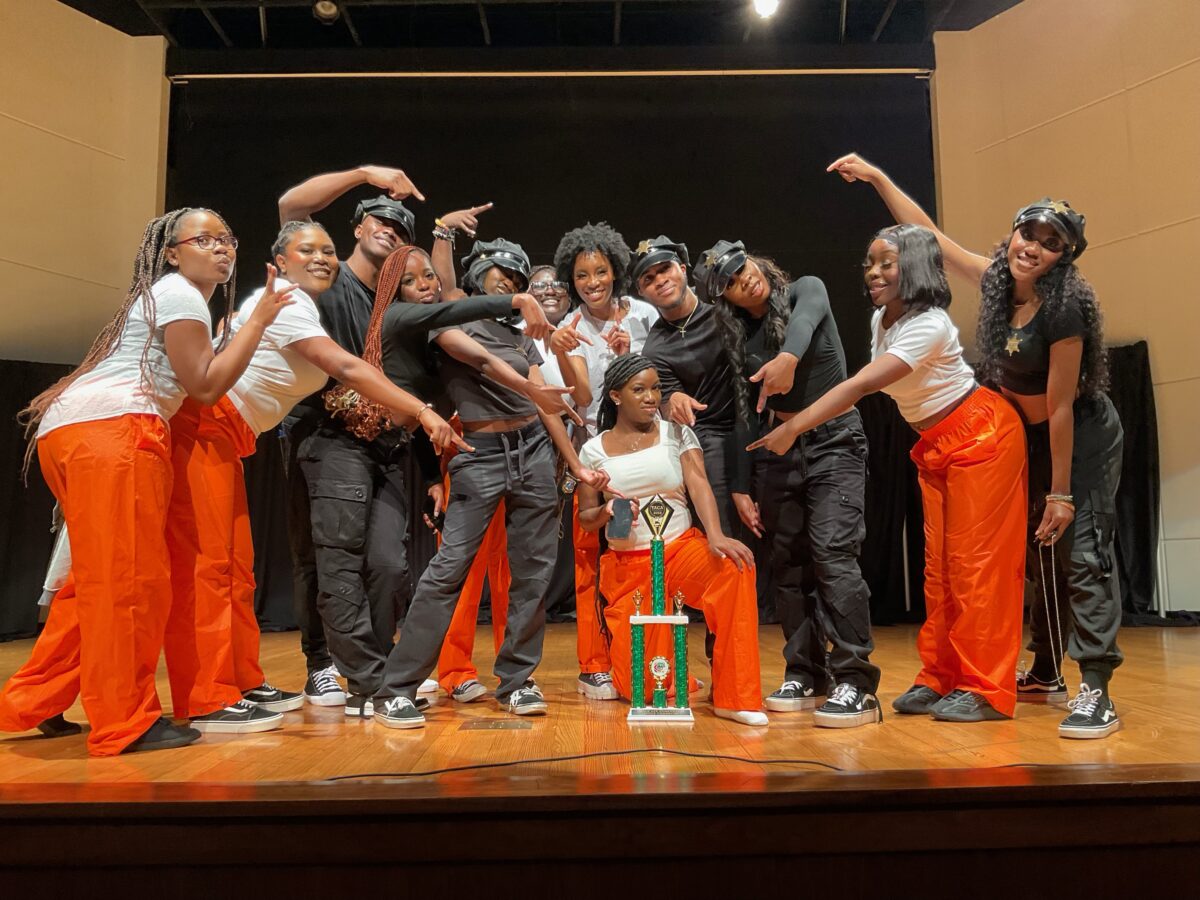
Q: What do you do for fun?
A: I’ve never taken a formal dance class but I love dancing. I auditioned for UMBC’s African Student Association Bumaye dance team. I made it! It’s a workout and I meet new people.

